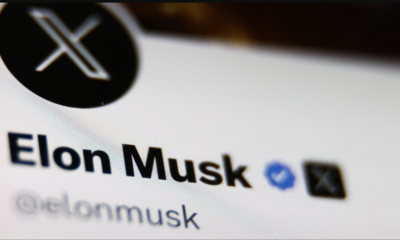News
Loni Assault Case: Uttar Pradesh Police asks Twitter India MD to report to police station within 7 days
The Uttar Pradesh Police has sent a written summon to Twitter India managing director Manish Maheshwari asking him to appear tp record his statement at Loni police station within seven days in connection with the posting of an alleged manipulated video of the assault of an elderly Muslim man in Ghaziabad.
“Some people used Twitter as a platform to spread animosity and hatred among people. Twitter did not take cognisance of such messages and rather encouraged such messages that sought to spread enmity and affect harmony among communities…..The case is being investigated and your participation is mandatory. Report to the Loni Border Police within seven days after receiving this letter to register your response.,” read the police letter addressed to Twitter India MD Manish Maheshwari.
This comes two days after after the state police booked Twitter, online news portal wire.in, journalists including Rana Ayyub, Saba Naqvi and Mohammed Zubair and Congress leaders for “promoting enmity between religions” for posting and promoting the video amid conflicting narratives of the attack. The micro-blogging site has been accused of not removing the “misleading” content linked to the June 5 incident.
The man, Abdul Samad Saifi, had alleged that his beard was cut off and he was forced to chant “Jai Shri Ram” by a group that assaulted him. However, the police have denied any communal angle to the incident. They said the accused beat him up because he had sold them a “tabeez (amulet)” that they believed did not work. The 72-year-old man’s family and friends have said the man’s attackers forced him to chant “Jai Shri Ram” and chopped off his beard.
Also Read: Indians cheated of over Rs150 crore by nationwide fraud syndicate through malicious mobile apps
Earlier this week, multiple media reports said that the microblogging platform lost ‘intermideiary status’ and could also lose legal indemnity in India after it failed to comply with new social media rules which required it to appoint key officers in India. An ‘intermediary’ status gives social media platforms immunity from liabilities over any third-party data hosted by them. The implications of losing legal cover or status as a social media intermediary are serious








































